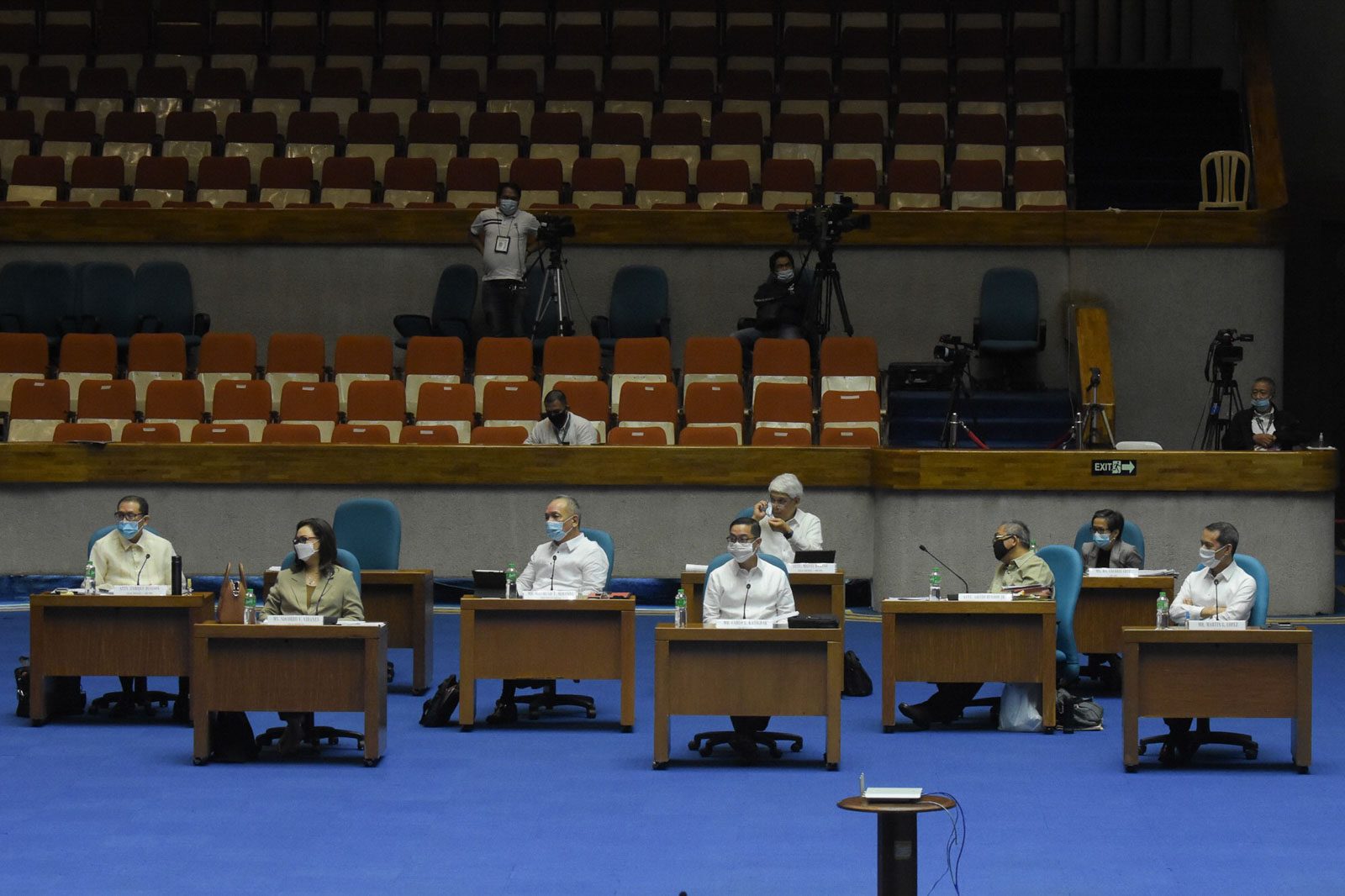SUMMARY
This is AI generated summarization, which may have errors. For context, always refer to the full article.

MANILA, Philippines (3rd UPDATE) – None of the Philippine Depositary Receipts (PDRs) sold by ABS-CBN Holdings to foreign companies gave these firms the right to own or manage the network.
This was the argument of ABS-CBN’s legal counsel Cynthia del Castillo as the House resumed its joint committee hearing on the network’s franchise issues on Thursday, June 11.
Del Castillo explained that ABS-CBN Holdings and ABS-CBN Broadcasting Corporation – the one seeking the legislative franchise – are different companies. This means that the PDR holders of ABS-CBN Holdings cannot interfere in ABS-CBN Broadcasting Corporation.
“Ang rights po ng (The rights of) PDR holders are only against ABS-CBN Holdings, hindi po (not) against ABS-CBN,” Del Castillo said.
“PDRs are purely financial instruments. Hindi po siya shares. Hindi po siya nakakaboto sa ABS-CBN Broadcasting at hindi po siya nakaka-participate sa management ng ABS-CBN Broadcasting (They are not shares. They cannot vote in ABS-CBN Broadcasting and they cannot participate in the management of ABS-CBN Broadcasting),” the lawyer added.
Cagayan de Oro City 2nd District Representative Rufus Rodriguez also argued the PDR holders are “never owners, shareholders, or stockholders” of ABS-CBN Corporation.
“A foreign PDR holder is not a part owner or even a small owner of ABS-CBN Broadcasting Corporation when compared to an ABS-CBN stockholder,” Rodriguez said.
“All these allegations that there has been violation… has no basis in fact and in law,” he added.
PDRs are financial instruments used by media entities to allow foreign investments without violating the constitutional rule that media companies should be 100% Filipino-owned.
Commercial law experts agree that PDRs entitle holders to only dividends, and not shares of stock, therefore there is no beneficial ownership. The Court of Appeals’ decision in Rappler’s PDR case says the issuance of PDR per se is not illegal.
But critics opposed to the grant of a new franchise to ABS-CBN claim that the network is supposedly foreign-owned because it had sold PDRs to foreign companies. (READ: ABS-CBN case: Testing the limits of corporate structuring practices)
“Ang PDRs po ay pagtago sa tunay na pagmamay-ari ng dayuhan (PDRs are a means to hide the ownership of a foreigner),” House committee on public accounts chair Mike Defensor insisted during the hearing.
Defensor claimed that the PDRs of ABS-CBN Holdings and Lopez Holdings Corporation – the publicly listed holding company of the Lopez Group of Companies that is founded by Eugenio Lopez Sr – are equal to having a share in ABS-CBN Broadcasting Corporation.
Lopez Holdings Corporation is the parent company of ABS-CBN Corporation and First Philippine Holdings Corporation, which has interests in power, property, and manufacturing.
“Sa dalawang korporasyon ng ABS-CBN Holdings and Lopez Holdings, mayroong mga banyaga na nagmamay-ari ng PDRs. At ang PDRs na ‘yan ay may katumbas na share sa ABS-CBN,” Defensor said.
(In the two corporations of ABS-CBN Holdings and Lopez Holdings, there are foreigners who own PDRs. And these PDRs are equivalent to shares in ABS-CBN.)
Del Castillo explained, however, that PDR investors expect only “cash distributions and gains” that they can derive in the trading and transfer of PDR ownership. PDR holders don’t have the right to elect the board of directors of ABS-CBN. (READ: EXPLAINER: Is Calida’s ABS-CBN PDR theory bad for business?)
ABS-CBN president and CEO Carlo Katigbak later said during the hearing that the gain a PDR holder hopes to capture is more on the “capital appreciation” of the PDR.
“If you had subscribed to P5 million worth of PDRs, and the company performed very well, then hypothetically again, that P5 million could be worth P6 million, in which case, you would have taken a 20% capital gain,” Katibak said.
Del Castillo also cited the Gamboa vs Teves, where the Supreme Court ruled that the term Filipino “capital” in Section 11, Article XII of the 1987 Constitution means “shares with voting rights, as well as full beneficial ownership.”
“You have rights to participate in the ownership of the mass media company only if the shares have been assigned to you or if the voting rights have been assigned to you. Hindi po ‘yan binigay sa PDRs (These were not granted to PDRs),” Del Castillo explained.
PDRs and the media
Issuing PDRs is a common practice among Philippine companies, including media outfits like ABS-CBN, GMA Network, and Rappler.
In 2018, the Securities and Exchange Commission (SEC) attempted to revoke Rappler’s license to operate over its issuance of PDRs to the Omidyar Network. Rappler appealed the case, which has been remanded to the SEC for review. The SEC has yet to issue a resolution on Rappler’s case.
During the hearing, Katigbak said ABS-CBN would be willing to buy back the PDRs if the court, the SEC, or even Congress would order its disqualification across the entire media industry.
This was the ABS-CBN president’s response when pressed by Minority Leader Bienvenido Abante Jr if the network would do away with PDRs if it is later proven that these financial instruments violate the Constitution.
Katigbak first explained that the SEC had deemed their PDRs, in particular, as legal.
“With regards to the PDRs, our sentiment is we acted in good faith by going to the SEC to secure approval before offering to the pbulic. At the time, the SEC agreed was legal,” Katigbak said.
“If the SEC, a court of law, or even Congress wishes to disqualify the use of PDRs equally across the media industry, ABS will be willing to modify and comply to the order, if so directed,” he added. – Rappler.com
Add a comment
How does this make you feel?
There are no comments yet. Add your comment to start the conversation.